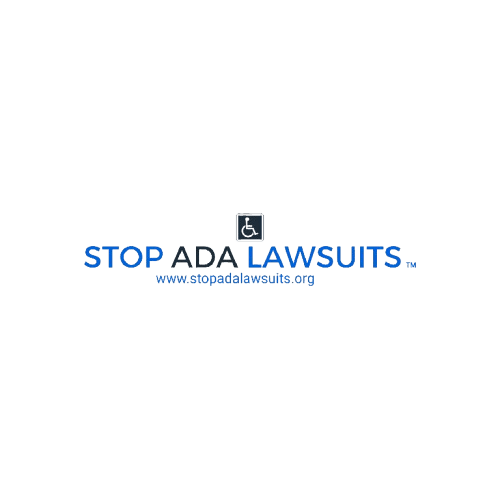The Americans with Disabilities Act (ADA) was established to ensure equal access and opportunities for individuals with disabilities. While the law is essential, some individuals or legal entities exploit its provisions by filing numerous ADA lawsuits against businesses, often with minimal or no merit. These individuals, commonly referred to as “serial ADA lawsuit filers,” can pose significant challenges to small businesses and property owners.
Understanding how to handle these situations effectively is crucial to protecting your business while maintaining compliance with ADA requirements. Here’s a guide to navigating these cases.
Who Are Serial ADA Lawsuit Filers?
Serial ADA lawsuit filers are individuals or legal entities that file multiple lawsuits against businesses for alleged violations of the ADA. Often, these cases focus on minor or technical infractions, such as slightly misaligned parking spaces or small variations in ramp slopes. These filers may:
- Target a specific region or industry.
- File lawsuits without providing prior notice or an opportunity for businesses to address the issue.
- Use litigation as a way to seek settlements rather than actual remedies for accessibility issues.
The Risks of Serial ADA Lawsuits
Dealing with serial ADA filers can be costly and stressful. Businesses may face:
- Legal Expenses: Even if the claims are unfounded, defending a lawsuit requires time and money.
- Reputational Damage: Repeated lawsuits can harm a business’s public image.
- Financial Strain: Settlement demands can add up, especially for small businesses operating on tight budgets.
Steps to Handle Serial ADA Lawsuit Filers
Addressing a lawsuit from a serial filer requires a proactive and informed approach. Here’s what you can do:
1. Stay Calm and Gather Information
- Review the Lawsuit: Carefully examine the complaint to understand the alleged violations.
- Check the Filer’s History: Research the individual or entity to determine if they have filed numerous similar lawsuits in the past.
2. Consult an Experienced Attorney
- Seek Legal Advice: Work with an attorney who specializes in ADA compliance and defense. They can help you assess the validity of the claim and develop a strategy.
- Evaluate Settlement Options: Depending on the circumstances, settling the case may be more cost-effective than pursuing litigation.
3. Conduct an ADA Audit
- Assess Your Property: Hire a certified ADA consultant to evaluate your facility and identify any potential compliance issues.
- Document Your Efforts: Keep records of all improvements made to address accessibility concerns.
4. Challenge Meritless Claims
- File a Motion to Dismiss: If the lawsuit lacks merit, your attorney may recommend filing a motion to dismiss the case.
- Demand Proof: Require the filer to provide specific evidence of the alleged violations.
5. Take Preventive Measures
- Proactively Address Issues: Regularly inspect your property and make necessary upgrades to ensure ADA compliance.
- Educate Your Staff: Train employees on ADA requirements and how to accommodate customers with disabilities.
6. Leverage Advocacy and Legislative Support
- Join Business Groups: Partner with local or national business organizations that advocate for ADA reform and protection against frivolous lawsuits.
- Support Legislative Changes: Advocate for laws that require notice-and-cure periods, giving businesses time to address accessibility issues before a lawsuit can be filed.
The Importance of ADA Compliance
While serial ADA filers can be frustrating to deal with, their actions often highlight areas where businesses can improve accessibility. Achieving full ADA compliance not only protects your business from lawsuits but also ensures that your services are accessible to all customers.
Final Thoughts
Serial ADA lawsuit filers exploit the law for personal gain, but businesses can take steps to protect themselves while staying committed to accessibility. By understanding the tactics of these filers, working with experienced legal professionals, and proactively addressing compliance issues, you can minimize risks and foster a more inclusive environment for all.
If you’re concerned about ADA compliance or facing a lawsuit, seeking professional guidance is essential. Don’t let fear of litigation prevent you from providing an accessible and welcoming space for everyone.

